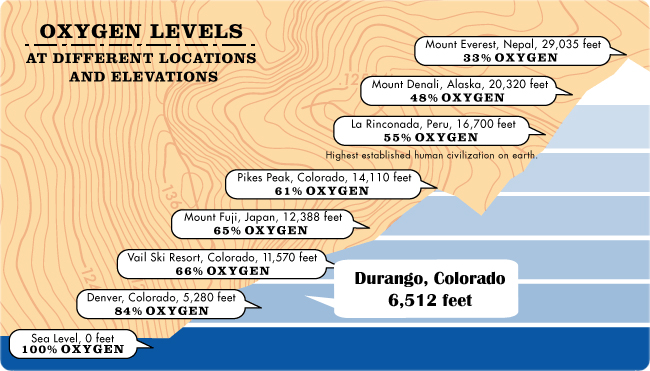- The first thing to remember is, if you are feeling symptoms of altitude sickness (headache, nausea, dizziness), return to a lower altitude. Acclimating can be different for everyone, listen to your body and do not continue until your symptoms decrease.
- Try not to overexert yourself for the first 24 hours, give your body time to adjust to the lower oxygen levels at high altitude.
- Light activity during the day is better than sleeping, because respiration slows when you sleep and makes the symptoms worse.
- Stay hydrated! Pay attention to what your stomach is telling you, if you can drink more water, do! You may not notice how thirsty your body actually is, so count on drinking up to twice the amount of water you normally would.
- Limit your intake of tobacco, alcohol, coffee and other diuretics. These dehydrate your body more quickly and also decrease your respiration during sleep.
- Protect yourself form the sun by wearing sunscreen with at least SPF 30 and reapplying throughout the day. Sunglasses and a hat are also great to keep the sun off of your face and help prevent headaches.
- Eat a high carbohydrate diet to keep your energy up while exerting yourself at high altitudes.
- If symptoms are severe or continue for more than 24-48 hours, seek medical advice.
A little preparation and knowledge can go a long way in helping you enjoy the wonder and beauty the mountains have to offer. Remember, there is no cure for altitude sickness. You can manage the symptoms, but the best medicine is prevention! So keep these tips in mind and enjoy your mountain vacation!

